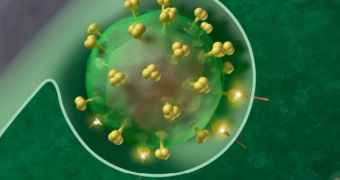Brainiacs at the Temple University School of Medicine in the US now claim that, while carrying out a series of experiments in laboratory conditions, they managed to successfully remove HIV from cultured human cells.
The experiments are detailed in a paper published in the journal Proceedings of the National Academy of Sciences this past July 21, and their outcome is hailed as a breakthrough in the fight against AIDS.
Still, it is important to note that, all things considered, it will probably be a while until the findings of this investigation can be used to treat HIV virus infections in human patients, the scientists behind this research project say.
As specialist Kamel Khalili puts it, “This is one important step on the path toward a permanent cure for AIDS. It's an exciting discovery, but it's not yet ready to go into the clinic. It's a proof of concept that we're moving in the right direction.”
In their paper in the journal Proceedings of the National Academy of Sciences, Kamel Khalili and colleagues explain that the experiments were carried out on the HIV-1 virus, i.e. the most common and pathogenic strain, Medical Express informs.
Like its brothers and sisters, HIV-1 likes to insert its genome permanently into its victims' DNA. Hence, those who come to be infected by this virus are left with no choice but try to keep its behavior under control by taking drugs for the rest of their lives.
To eliminate the HIV-1 genome from the cultured human cells, researchers used a DNA-snipping enzyme known as nuclease and a targeting strand of RNA dubbed guide RNA (gRNA). Together, these molecular tools tracked down the virus genome and excised it.
The DNA-snipping enzyme and the targeting strand of RNA were tested on more than just one cell type, and proved surprisingly efficient at locating and eliminating the HIV-1 genome every time they were put to work, Kamel Khalili and colleagues maintain.
The Temple University School of Medicine researchers say that they plan to continue their work, and hope that it will not be long until they are given permission to roll out clinical trials involving human patients and attempt to cure HIV virus infections in people.
“We are working on a number of strategies so we can take the construct into preclinical studies. We want to eradicate every single copy of HIV-1 from the patient. That will cure AIDS. I think this technology is the way we can do it,” specialist Kamel Khalili explains.

 14 DAY TRIAL //
14 DAY TRIAL //